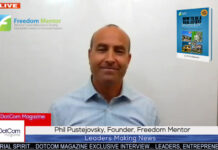The biotech industry, characterized by its dynamic nature and transformative impact on healthcare and life sciences, is shaped by ongoing trends that drive innovation, investment, and regulatory developments. Biotech industry trends encompass a wide range of advancements, from breakthrough therapies and precision medicine to technological innovations in genetic engineering and bioinformatics. Understanding these trends is essential for stakeholders, including investors, researchers, policymakers, and healthcare providers, to navigate opportunities and challenges in this rapidly evolving sector.
Biotech industry trends reflect the convergence of biology, medicine, and technology, fostering a new era of scientific discovery and therapeutic development. This interdisciplinary approach has led to groundbreaking achievements, such as the development of gene editing technologies like CRISPR-Cas9, the rise of personalized medicine based on genomic data, and the accelerated timeline for vaccine development in response to global health crises. These trends underscore the industry’s resilience and capacity to address unmet medical needs while driving economic growth and societal impact.
Overview of Biotech Industry Trends
Biotech industry trends encompass the transformation of biological research into tangible applications that improve human health and enhance agricultural and industrial processes. From its early roots in recombinant DNA technology and the production of insulin using genetically modified organisms, biotechnology has expanded to include diverse fields such as regenerative medicine, synthetic biology, and bioinformatics. Today, biotech companies are at the forefront of developing novel therapies for cancer, genetic disorders, and infectious diseases, leveraging advances in molecular biology, computational modeling, and bioengineering.
The evolution of biotech industry trends is driven by several key factors:
Technological Advancements: Innovations in gene editing, next-generation sequencing, and high-throughput screening have revolutionized the speed and precision of scientific discovery and therapeutic development. These technologies enable researchers to manipulate genetic material, analyze complex biological systems, and accelerate drug discovery processes.
Market Demand: Growing global healthcare expenditures, an aging population, and the rise of chronic diseases have created demand for innovative therapies that offer improved efficacy, safety, and patient outcomes. Biotech industry trends respond to these market needs by focusing on personalized medicine, immunotherapy, and targeted therapies tailored to individual genetic profiles.
Regulatory Landscape: The regulatory environment plays a crucial role in shaping biotech industry trends, influencing the approval process for new drugs, medical devices, and biologics. Regulatory agencies such as the U.S. Food and Drug Administration (FDA) and the European Medicines Agency (EMA) set standards for safety, efficacy, and manufacturing quality, impacting the development timelines and market access for biotech products.
Investment and Financing: Biotech industry trends are closely tied to investment flows from venture capital, private equity, and public markets. Funding supports research and development (R&D) efforts, clinical trials, and commercialization activities, driving innovation and fueling growth in biotech companies. Investment trends reflect market confidence in emerging technologies and therapeutic modalities, influencing industry dynamics and competitive landscapes.
Collaboration and Partnerships: Collaboration among biotech companies, academic institutions, research organizations, and healthcare providers is essential for advancing industry trends. Partnerships facilitate knowledge sharing, access to resources, and collaborative R&D efforts aimed at addressing complex scientific challenges and accelerating the translation of research into clinical applications.
Key Biotech Industry Trends
Precision Medicine and Personalized Therapies: Precision medicine represents a paradigm shift in healthcare, focusing on the customization of medical treatments based on individual genetic, environmental, and lifestyle factors. Advances in genomics, biomarker identification, and bioinformatics enable the development of targeted therapies that match patients with the most effective treatments, minimizing adverse effects and optimizing clinical outcomes. Personalized medicine holds promise for treating cancer, rare diseases, and genetic disorders, reshaping clinical practice and healthcare delivery.
Gene Editing and Therapeutic Advancements: Gene editing technologies, including CRISPR-Cas9, TALENs, and zinc finger nucleases (ZFNs), have revolutionized the ability to modify genetic sequences with unprecedented precision. These tools are employed in therapeutic applications such as correcting genetic mutations, modulating gene expression, and enhancing immune cell therapies. Gene editing holds potential for treating inherited disorders, developing personalized cancer therapies, and engineering cells for regenerative medicine purposes, driving innovation in biotech industry trends.
Regenerative Medicine and Stem Cell Therapies: Regenerative medicine focuses on harnessing the body’s own regenerative capabilities to repair, replace, or regenerate damaged tissues and organs. Stem cell therapies, including pluripotent stem cells and adult stem cells, hold promise for treating conditions such as spinal cord injuries, heart disease, and degenerative disorders. Biotech industry trends in regenerative medicine encompass advancements in tissue engineering, cell-based therapies, and organ transplantation techniques, aiming to restore function and improve quality of life for patients.
Biopharmaceutical Innovation and Drug Development: Biopharmaceuticals, including monoclonal antibodies, recombinant proteins, and nucleic acid-based therapies, represent a growing segment of the biotech industry focused on developing biologically derived drugs for therapeutic purposes. Biotech industry trends in drug development emphasize biologics manufacturing, formulation optimization, and bioprocess engineering to enhance product stability, efficacy, and patient compliance. The expansion of biopharmaceutical pipelines targets oncology, autoimmune diseases, and infectious diseases, addressing unmet medical needs and driving market growth.
Digital Health and Healthcare Technologies: Digital health technologies integrate information technology, data analytics, and connectivity to enhance healthcare delivery, patient monitoring, and medical decision-making. Biotech industry trends in digital health include wearable devices, telemedicine platforms, and health informatics solutions that improve diagnostic accuracy, treatment adherence, and population health management. The adoption of artificial intelligence (AI) and machine learning algorithms enables predictive modeling, personalized interventions, and real-time data analysis, transforming healthcare delivery and patient outcomes.
Environmental Biotechnology and Sustainability: Environmental biotechnology applies biological processes and biocatalysts to address environmental challenges such as pollution remediation, sustainable agriculture, and renewable energy production. Biotech industry trends in environmental biotechnology include bioremediation technologies, biofuels development, and agricultural biotechnology innovations that enhance crop productivity and resilience to climate change. Sustainable practices and biobased products contribute to environmental conservation efforts and promote eco-friendly solutions across industries.
Bioinformatics and Computational Biology: Bioinformatics integrates biological data, computational algorithms, and statistical analyses to interpret complex biological systems, predict molecular interactions, and accelerate drug discovery processes. Biotech industry trends in bioinformatics encompass genomic sequencing, proteomics research, and structural biology simulations that facilitate drug target identification, biomarker discovery, and personalized medicine applications. Advances in computational biology enhance data-driven decision-making in biotech R&D, clinical trials, and precision healthcare initiatives.
Global Health and Infectious Disease Research: Global health initiatives focus on combating infectious diseases, pandemics, and public health threats through biotechnological innovations in vaccine development, diagnostic testing, and disease surveillance. Biotech industry trends in global health address emerging infectious diseases, antimicrobial resistance, and pandemic preparedness strategies to safeguard population health and promote healthcare equity worldwide. Collaborative efforts among biotech companies, governments, and global health organizations aim to accelerate the development and distribution of life-saving interventions in underserved regions.
Conclusion
Biotech industry trends reflect a convergence of scientific innovation, technological advancement, and market dynamics that drive transformative changes in healthcare, agriculture, and environmental sustainability. The evolution of biotechnology is shaped by trends in precision medicine, gene editing, regenerative medicine, digital health, and biopharmaceutical innovation, supported by investments in R&D, regulatory frameworks, and global collaborations. These trends underscore the industry’s capacity to address complex challenges and capitalize on opportunities for improving human health, environmental stewardship, and economic growth.
Understanding biotech industry trends is essential for stakeholders seeking to navigate the evolving landscape, identify investment opportunities, and contribute to the advancement of biomedical research and healthcare innovation. By embracing innovation, fostering collaboration, and prioritizing patient-centered outcomes, biotech industry trends pave the way for future breakthroughs in disease treatment, sustainable agriculture, and biotechnological applications that benefit society as a whole

















